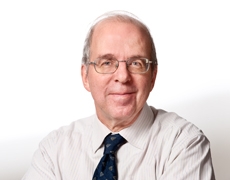Main navigation
-
PUBLICATIONS & RESOURCES
- Blog
- Editorial Board Nominations
- Consulting Area Editor
- Information for Authors
- Overview Articles
- Publications
- Publications FAQ
- Publications & Resources
- Publications Guidelines
- SigPort
- Special Issue Deadlines
- SPS Challenge Program
- SPS Newsletter
- SPS Resource Center
- Submit a Manuscript
- Top Accessed Articles
- Unified EDICS
- CONFERENCES & EVENTS
- EDUCATION & TRAINING
-
COMMUNITY & INVOLVEMENT
- Award Recipients
- Awards & Submit Award Nomination
- Call for Nominations
- Chapter Locator
- Chapters and Communities
- Community & Involvement
- IEEE Fellows Program
- Initiatives
- Join a Technical Committee
- Join SPS
- Organize Local Initiatives
- Seasonal Schools
- Students
- Technical Committees
- Technical Working Groups
- Women in Signal Processing
- Volunteer Opportunities
- Young Professionals
- CAREER & INDUSTRY
- ABOUT IEEE SPS
- FOR VOLUNTEERS
-
PUBLICATIONS & RESOURCES
Publications & Resources
IEEE Signal Processing Society publications, tools, and author resources. Learn more.
-
CONFERENCES & EVENTS
Conferences & Events
Upcoming events, deadlines, and planning resources. Learn more.
-
EDUCATION & TRAINING
Education & Training
Signal processing education and professional development program for all career levels. Learn more.
-
COMMUNITY & INVOLVEMENT
Community & Involvement
Learn about SPS membership, Member Programs, Technical Committees, and access shared tools and support. Learn more.
-
CAREER & INDUSTRY
Career & Industry
The IEEE Signal Processing Society is dedicated to supporting the professional growth and career advancement of its members in the dynamic field of signal processing. Learn More
-
ABOUT IEEE SPS
About IEEE SPS
IEEE Signal Processing Society publications, tools, and author resources. Learn more.
-
FOR VOLUNTEERS
For Volunteers
Resources, tools, and support for SPS volunteer leaders. Learn more.
IEEE Signal Processing Society on 
@ieeeSPS
11.3K subscribers‧180 videos
79 views • 2 weeks ago
43 views • 2 weeks ago
1K views • 2 months ago
Publications & Resources
IEEE Signal Processing Society publications, tools, and author resources. Learn more.
Conferences & Events
Upcoming events, deadlines, and planning resources. Learn more.
Education & Training
Signal processing education and professional development program for all career levels. Learn more.
Community & Involvement
Learn about SPS membership, Member Programs, Technical Committees, and access shared tools and support. Learn more.
About IEEE SPS
IEEE Signal Processing Society publications, tools, and author resources. Learn more.
For Volunteers
Resources, tools, and support for SPS volunteer leaders. Learn more.
The IEEE Signal Processing Society is dedicated to supporting the professional growth and career advancement of its members in the dynamic field of signal processing. Learn More
Signal processing education and professional development program for all career levels. Learn more.

 ANNOUNCEMENTS
ANNOUNCEMENTS